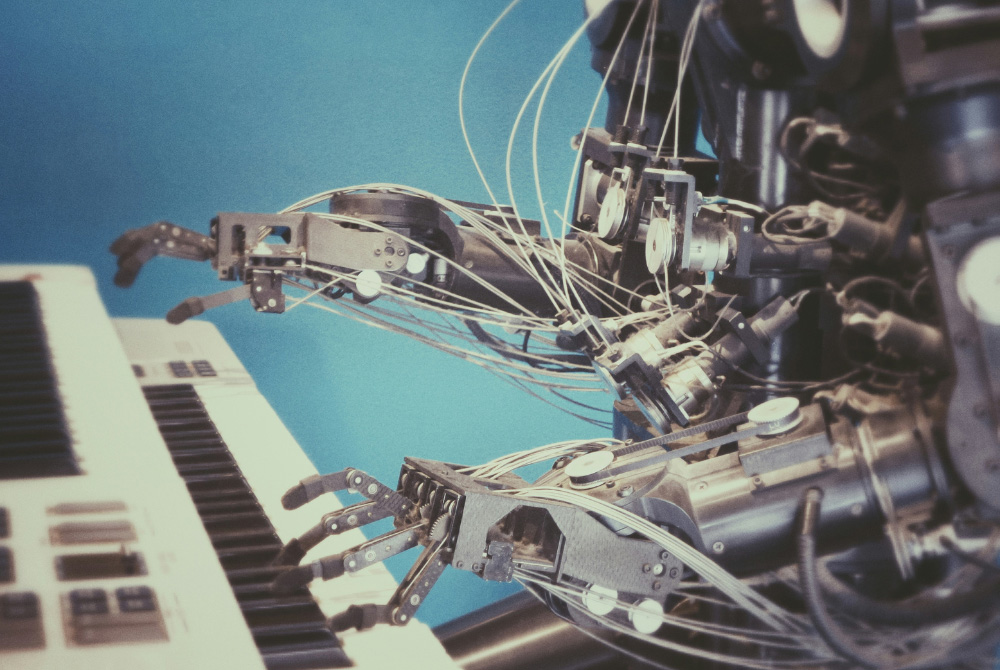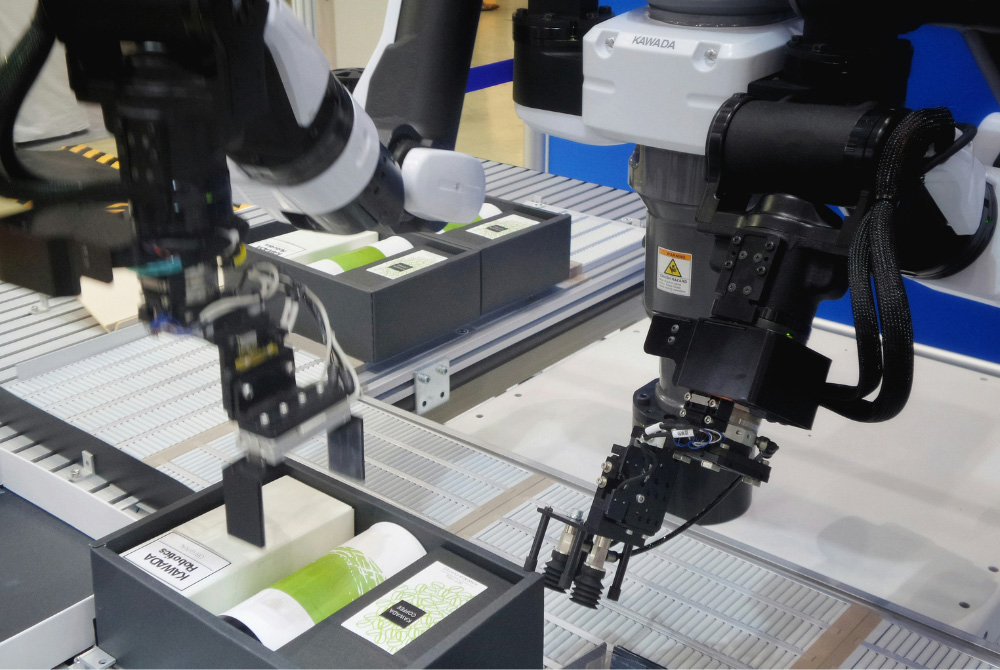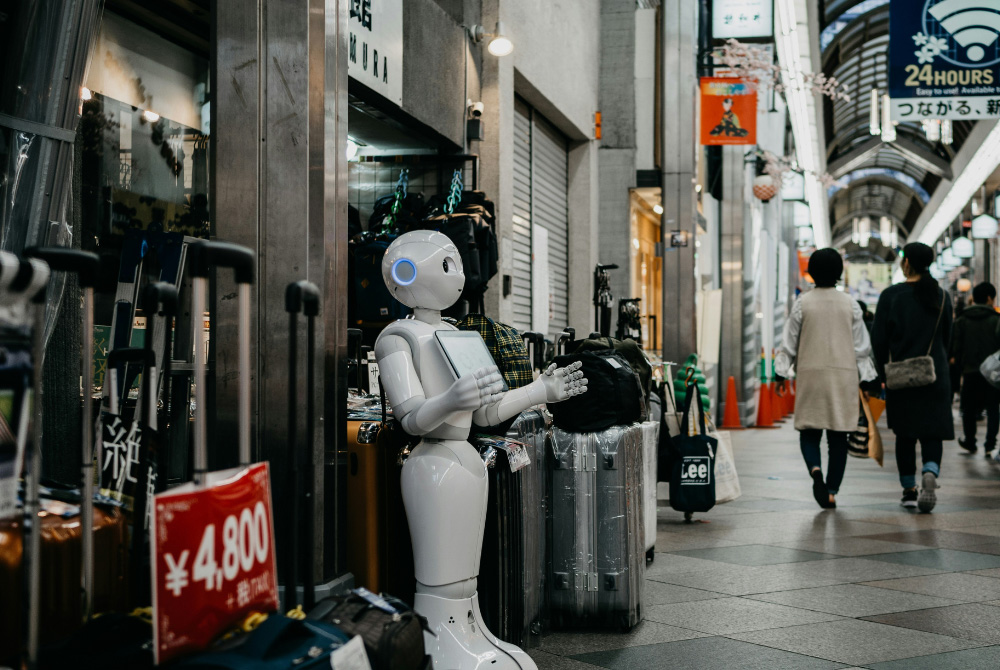
As the dawn of the Artificial Intelligence (AI) era reshapes the landscape of global industries, its profound impact on sectors ranging from healthcare to transportation, and beyond, signals a transformative period of unprecedented advancements. The integration of AI technologies promises not only heightened efficiency and accuracy but also the potential to unlock innovative solutions to long-standing challenges. This evolution, however, is accompanied by a complex array of ethical, economic, and technical considerations that merit careful examination. As we stand on the cusp of this new era, the question arises: How will industries adapt to harness the full potential of AI, and what implications will this have for the future of work, privacy, and human-machine interaction? Here's all about the impact of AI in industry.
AI in Industry: Key Takeaways
- AI enhances efficiency across industries, from healthcare to manufacturing.
- It improves accuracy in tasks such as medical diagnoses and quality control.
- AI personalizes experiences in retail and financial services for better customer satisfaction.
- It contributes to safer and more sustainable practices in transportation and agriculture.
AI In Healthcare Industry
The advent of artificial intelligence (AI) is ushering in a transformative era in the healthcare industry, significantly enhancing the efficiency and accuracy of medical services. Central to this transformation is AI's capability in medical imaging analysis, where it can discern patterns and anomalies beyond human detection levels. This advancement not only accelerates diagnostic processes but also increases the precision with which diseases are identified, leading to more personalized and effective treatment plans. Furthermore, AI's prowess in predicting patient outcomes plays a crucial role in prognostication and treatment optimization. By analyzing vast datasets, AI algorithms can forecast disease progression, enabling healthcare providers to recommend preemptive treatments and tailor care strategies to individual patient needs, thus significantly improving the likelihood of positive health outcomes.
AI In Transportation Industry
Artificial intelligence is setting the stage for significant advancements in the transportation industry, enhancing efficiency, safety, and sustainability. AI-driven technologies are revolutionizing the way we perceive and interact with transport systems, pushing the boundaries of what's possible in mobility solutions. The integration of AI into transportation is not just about innovation; it's about creating smarter, more responsive systems that cater to the needs of the future.
- AI can improve traffic management systems, leading to smoother flows and reduced congestion.
- Optimized routes for delivery services minimize delays and fuel consumption.
- Enhanced autonomous vehicles' decision-making processes increase road safety.
- Predictive analytics help in reducing accidents by foreseeing potential hazards.
- Revolutionizing public transportation systems for better accessibility and efficiency.
These AI industry advancements signify a transformative period in transportation, driven by the capabilities of AI in autonomous vehicles and traffic optimization.
AI In Retail Industry
Just as AI is reshaping transportation by enhancing efficiency and safety, it is similarly revolutionizing the retail industry by personalizing the shopping experience and streamlining operations. The integration of AI into retail is not just a futuristic concept but a current reality that is enhancing how consumers interact with brands and products. By leveraging AI-powered customer insights, retailers are able to offer highly personalized shopping experiences that meet the unique preferences and needs of each customer. This level of customization increases customer satisfaction and loyalty, driving sales and fostering a competitive edge in the bustling market. Furthermore, industry AI's ability to analyze vast amounts of data enables retailers to understand consumer behavior deeply, ensuring that the right products are recommended to the right customers at the right time.
AI In Manufacturing Industry
In the realm of manufacturing, AI-driven innovations are paving the way for smarter, more efficient production processes. These advancements are not only transforming how products are made but also redefining the very nature of manufacturing environments. Through the integration of AI technologies, the sector is witnessing a significant leap towards the future of industrial production.
- Predictive maintenance ensures machinery operates at peak efficiency, reducing downtime.
- AI enhances quality control with unprecedented precision.
- Smart factories utilize interconnected systems for seamless operation.
- Optimization algorithms significantly cut operational costs.
- AI-driven analytics provide insights for continuous process improvement.
These innovations symbolize a monumental shift towards an era where manufacturing intelligence is not just an option but a necessity for competitiveness and sustainability.

AI In Financial Industry
Shifting focus to the financial services industry, the implementation of AI technologies is revolutionizing how businesses manage risk, detect fraud, and interact with customers. AI's role in personalized finance is transformative, enabling institutions to offer customized advice and products to clients based on their unique financial histories and goals. This shift towards personalization enhances customer satisfaction and loyalty, carving a path for more nuanced financial planning and investment strategies. Moreover, automated trading, powered by AI, is reshaping the landscape of investments. By analyzing vast datasets and executing trades at speeds unattainable by humans, these systems maximize efficiency and profitability, reducing human error and emotional decision-making in the process. The financial services revolution brought on by AI is fundamentally altering the industry's approach to customer service, risk management, and investment strategies.
AI In Agriculture Industry
How is artificial intelligence reshaping the agriculture industry? The advent of AI has ushered in significant advancements, transforming traditional farming methods into highly efficient, data-driven processes. By integrating automated farming techniques and precision agriculture, AI is enabling farmers to achieve higher productivity, sustainability, and profitability.
- Automated farming: AI-driven machinery performs tasks such as planting, weeding, and harvesting, reducing manual labor and increasing efficiency.
- Precision agriculture: Utilizes data from sensors and satellites to make informed decisions about crop management, optimizing resource use.
- Yield prediction: AI algorithms analyze various data points to forecast crop yields accurately, aiding in planning and distribution.
- Soil monitoring: Continuous analysis of soil conditions helps in applying the exact nutrients required, promoting healthy crop growth.
- Pest control: AI identifies pest threats early and recommends precise interventions, minimizing chemical use while protecting crops.
AI In Customer Service Industry
Artificial intelligence is revolutionizing the customer service industry by enabling round-the-clock support and personalized interactions. AI-powered chatbots have become the cornerstone of this transformation, offering businesses an efficient way to handle customer inquiries without human intervention. These intelligent systems can manage a multitude of customer interactions simultaneously, providing quick and accurate responses to common questions and concerns. Moreover, they are capable of learning from each interaction, which improves their ability to understand and respond to customer needs over time. This not only enhances the customer experience by reducing wait times and improving resolution rates but also allows human customer service representatives to focus on more complex issues. The integration of AI into customer service processes signifies a substantial leap forward in how businesses engage with their customers, promising a future of more personalized and responsive service.

About AI In Industry: Frequently Asked Questions
How Does AI Address Ethical Concerns and Ensure Privacy in Handling Sensitive Data Across Various Industries?
Addressing ethical concerns, AI incorporates measures like algorithm bias mitigation and data anonymization to protect privacy across industries. A striking statistic reveals that over 80% of healthcare organizations implementing AI prioritize patient data privacy. By rigorously testing algorithms for fairness and employing advanced techniques for anonymizing sensitive information, AI ensures ethical handling of data. These steps are crucial in maintaining trust and integrity in AI's expansive role across various sectors.
What Are the Potential Job Impacts and How Is AI Reshaping Workforce Requirements and Employment Opportunities in These Industries?
The integration of AI across various sectors is reshaping workforce requirements and employment opportunities. While there is potential for workforce displacement due to automation, AI also creates a demand for new skill sets, emphasizing AI education and specialized training. Industries are now seeking professionals adept in AI technologies, thereby generating fresh employment prospects. This shift underscores the importance of adapting education systems to equip individuals with the necessary skills for a transforming job landscape.
How Does AI Integration Affect Small Businesses and Startups Compared to Large Corporations Within These Sectors?
AI industry integration levels the playing field, embodying the adage "necessity is the mother of invention." For small businesses and startups, it offers accelerated market entry and innovation speed, enabling them to compete with larger corporations. While larger entities benefit from scale, their agility often lags behind smaller counterparts, who can swiftly adapt AI for niche solutions and personalized services. Thus, AI integration affects entities differently, magnifying strengths and exposing vulnerabilities within these sectors.
What Are the Challenges and Limitations of AI in Realizing Its Full Potential Across Different Industries?
The primary challenges in harnessing AI's full potential across industries include data scarcity and algorithm bias. Data scarcity hampers the ability of AI systems to learn effectively, limiting their performance and applicability in real-world scenarios. Algorithm bias, on the other hand, can lead to unfair or discriminatory outcomes, undermining trust in AI applications. Addressing these limitations is crucial for the successful integration and ethical deployment of AI technologies in various sectors.
How Do Governments and Regulatory Bodies Plan to Oversee and Regulate the Rapid Integration of AI Technologies to Protect Consumer Rights and Promote FAIr Competition?
As governments and regulatory bodies chart the course through the digital frontier, they are akin to gardeners pruning and guiding the growth of a vibrant ecosystem. Their role in overseeing the rapid integration of AI technologies involves crafting AI legislation and promoting global standards. These efforts aim to protect consumer rights and ensure fair competition, ensuring that the blossoming of AI across industries is both sustainable and beneficial for all stakeholders involved.


